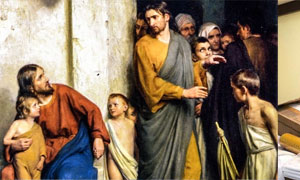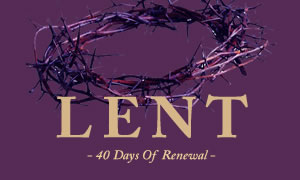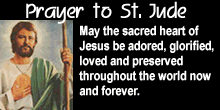


 “These impious Galileans not only feed their own poor, but ours also!”
“These impious Galileans not only feed their own poor, but ours also!”
As I write, a friar from my own Dominican community is in quarantine waiting to board the USNS Mercy. Commissioned in the Naval Reserves, this Dominican friar has been called up to serve as chaplain on board the 1,000-bed floating hospital. One of our Manhattan priories has entirely re-envisioned the common life of the friars there in order to serve the sick. Taking extraordinary means to care for the souls in their charge, these brothers have made broad adaptations to our way of life in order to serve.
A friar from that community even moved into a nursing home to care for residents. Dozens of friars have visited hospitals and nursing homes, offering the sick the sacraments, prayers and support. Friars have found innovative ways to hear confessions and developed new means of preaching and teaching. These, and more, are just the efforts of my own religious order. And all of these efforts can be known by one simple name.
They all belong to the crown jewel of Christian virtues: mercy. Mercy. Christianity. The two words are practically interchangeable. When Julian the Apostate, the Roman Emperor who attempted to reinstate pagan Roman civic religion, reformed the temple priesthood, he lamented the incredible care Christians had for the poor. He was particularly enraged at the breadth of their outreach. Julian is known to have said, “These impious Galileans not only feed their own poor, but ours also; welcoming them into their agapae, they attract them, as children are attracted, with cakes.”
During the plagues, famines, and wars of the 3rd century, the conduct of Christians baffled pagan and civic powers. Allegiance to the Gospel of Jesus can have no other course. Julian attempted to impose a stricter moral code upon his priests, even insisting that they undertake works of mercy to care for the sick and the poor. These efforts though had none of the fragrance, none of the savor of the Gospel.
Christians love the poor and the sick because Christ loved the poor and the sick. Jesus tells us in Matthew’s Gospel, “Whatsoever you do for the least of these, you do unto me” (Matt. 25:40). In imitation of Christ and in response to his command, Christians do not run away from disaster; we run to it. Many humanitarian efforts are being undertaken presently as the world faces COVID-19. They can and ought to be praised. Thank God for the many signs of generosity of heart we are seeing around us. Altruism and magnanimity, though, do not necessarily rise to the level of Christian mercy. We should be cautious in conflating them. The distinct resonance of Christian mercy sounds like nothing else this world can offer. Even though Julian tried to enforce morals and service among a cast of priests, his efforts came to naught. The results of his experiment were not merely sociological or economical as some have argued. There was a much bigger void.
Christians love the poor and the sick because Christ loved the poor and the sick. The charity that is poured out upon any soul in need comes from the mercy of Christ’s own compassionate heart. The difference between humanitarian aid and Christian mercy is CHRIST, and that difference is everything! The will to continue to care for the sick; the strength to serve the exhausted, the needy, the thankless, the careless, the refugee does not have to be summoned from within. The fervor for a supererogatory love for humanity can only come from one who laid down his life for his friends. This is the mystery of Divine Mercy Sunday.
Christ who gave his own life for the world, redeems us from our sins, and desires that every soul should come to know the depths of this love. His death and resurrection, including appearing to his disciples, is the means by which Christ has revealed the love of the Father. Pope Francis recently said at a general audience, “Where does our mercy come from? Jesus told us: ‘Be merciful, even as your Father is merciful’ (Lk 6:36).
The more one welcomes the Father’s love, the more we can love.” To pour forth mercy is to participate in the revelation of the Father’s love. This is what the rays of red and white on the image of the Merciful Jesus revealed to St. Faustina show. The love which pours forth from Christ’s heart is mercy! It is the love of the Father spilled out!
John Paul II, the great apostle of Divine Mercy, once wrote, “The truth, revealed in Christ, about God the ‘Father of mercies,’ enables us to ‘see’ Him as particularly close to man especially when man is suffering, when he is under threat at the very heart of his existence and dignity.” When there is suffering, Christ can bring calm.
In those moments the power of the Gospel will be made known. Christ will rush in and flood weary hearts with his peace. Today on Divine Mercy Sunday, we continue to rejoice in the course of our Easter celebrations. Mercy is not one aspect of the Gospel of Jesus; Mercy is its very center.


I have been thinking a great deal about my experience at Reconciliation this past Saturday. I felt an intense and unexplainable urge to go and confess my sins when I woke up that morning. I try to go every six weeks or so, but this was no routine visit to the priest for me. I needed to unburden myself of the numerous venial sins I had committed since I last participated in this Sacrament.
Purest Gold: God's Refining Fire in our Lives »
After salvation, many young Christians wonder if there's anything more to their newfound faith than just the security blanket of "being a Christian." Time and time again, God shows himself as a "refiner," and our lives are as gold. God started leading me in this study to understand what He was doing in my life, as well as in the lives of others.
Picking up my pen to write this column, I couldn’t imagine how time flies. Since the last publication of this column I have gone through a lot, especially the loss of my dear mother to whom I dedicate this article. Not only her, but seems I lost a whole generation of my close family.
How to Achieve Business Excellence »
“Do you see a man who excels in his work? He will stand before Kings; He will not stand before unknown men.” Proverbs 22:29
Spiritual Development for our Youth »
Most of us youth in today's fast moving world are easily thrown off by difficulties and worries.
The theme of conversion is a thread that runs all through Lent, but conversion takes on different aspects throughout the phases of Lent. The first two and a half weeks focused on the interior turning of hearts; the liturgy urges the faithful to reflect and examine consciences thoroughly.
Saint Josephine Bakhita »
Feast Day: February 8
Patron Saint Of: Sudan
Saint Josephine Margaret Bakhita was born around 1869 in the village of Olgossa in the Darfur region of Sudan. She was a member of the Daju people and her uncle was a tribal chief. Due to her family lineage, she grew up happy and relatively prosperous, saying that as a child, she did not know suffering.
Catholics Must Fast More Intensely This Lent»
The Norbertine Canons of St. Michael's Abbey have created this digital Lenten retreat so that you can journey through this holy season alongside them. If you want to have one of your best Lenten seasons yet, join us in our Lenten Program "The Great Fast" - https://theabbotscircle.com/the-great-fast-join
When Your Faith Is Put to the Test - Bishop Barron's Sunday Sermon»
Friends, we come now to the Second Sunday of Lent, and we’re on both dangerous and very holy ground with the first reading from the twenty-second chapter of Genesis. The ancient Israelites referred to it as the “Akedah,” which means the “binding”: Abraham binds and is ready to sacrifice Isaac at God’s command.

Copyright © 2002-2024 THE BEACON INTERNATIONAL CATHOLIC MAGAZINE. All rights reserved.
another mc.rufus interactive web design